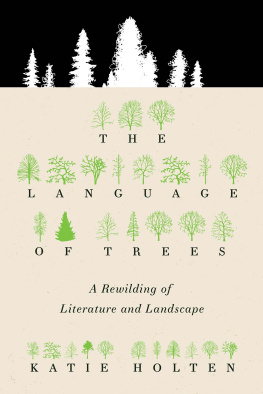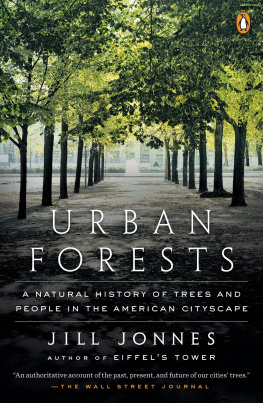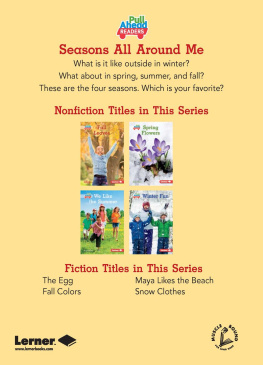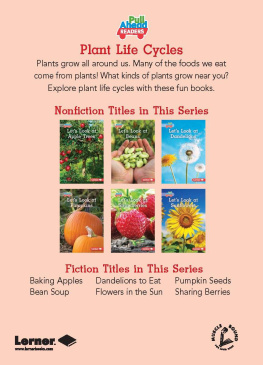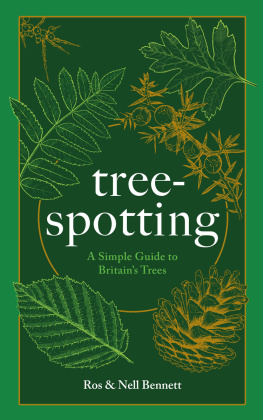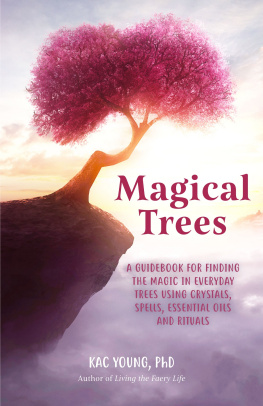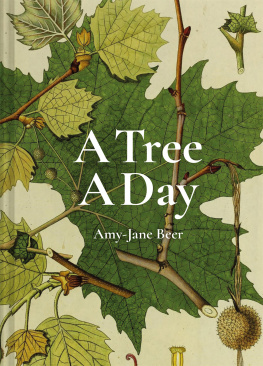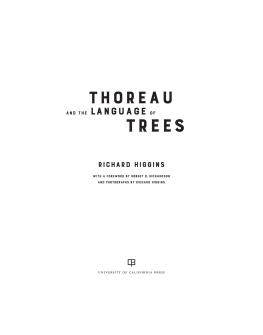Contents
Guide


THE
LANGUAGE
OF
TREES
A Rewilding of Literature and Landscape
KATIE HOLTEN


Contents
| ROSS GAY
| KATIE HOLTEN
| KATIE HOLTEN
| WINONA LADUKE
| LUCY LARCOM
| TACITA DEAN
| SOJOURNER TRUTH
| PEDRO REYES
| LUCY OHAGAN
| RACHAEL HAWKWIND
| ROBERT MACFARLANE
| BRIAN J. ENQUIST
| ANDREA BOWERS
| ZADIE SMITH
| JAMES GLEICK
| ADA LIMN
| CSAR A. HIDALGO
| FUTUREFARMERS
| JORGE LUIS BORGES
| PLATO
| RADIOHEAD
| LUCHITA HURTADO
| THOMAS PRINCEN
| IRENE KOPELMAN
| AGNES MARTIN
| VALERIE SEGREST
| SE EG JRGENSEN
| ADA LOVELACE
| SUSAN MCKEOWN
| NICOLA TWILLEY
| AMY HARMON
JONATHON MILLER WEISBERGER
| ROZ NAYLOR
| JESSICA J. LEE
| URSULA K. LE GUIN
| EDUARDO KOHN
| GAIA VINCE
| E.J. MCADAMS
| ELIZABETH KOLBERT
| MAYA LIN
| FORREST GANDER and KATIE HOLTEN
| TANAYA WINDER
| AMITAV GHOSH
| CAMILLE T. DUNGY
| AIMEE NEZHUKUMATATHIL
| FRITZ HAEG
| MARY REYNOLDS
| CARL PHILLIPS
| SUZANNE SIMARD
| NICOLE DAVI
| INGER CHRISTENSEN
| CHARLES GAINES
| KATIE PATERSON
| ROBERT SULLIVAN
| ANDREA ZITTEL
| AMY FRANCESCHINI
| RACHEL SUSSMAN
| NEMO ANDY GUIQUITA
| NATALIE JEREMIJENKO
| RICHARD POWERS
| SUMANA ROY
| 
| KINARI WEBB
WILLIAM CORWIN AND COLIN RENFREW
| ROBIN WALL KIMMERER
ROSS GAY
| AENGUS WOODS
ANNA-SOPHIE SPRINGER
| TOBY KIERS
CHELSEA STEINAUER-SCUDDER
| KATIE HOLTEN


ROSS GAY
I sometimes think of making a book of all the trees I have really loved. Heres a very incomplete list: the mulberry tree in the tiny woods between the school and the apartments where I grew up outside of Philadelphia, into which every June wed squirrel to harvest; the chokecherry tree in Verndale, Minnesota, where my grandpa parked his hospital-green 68 Chevy pickup, atop which Id scoot to pull some fruit for the both of us; the redbud tree on Third Street my partner Stephanie showed me, whose leaves, backlit late in the day, became a canopy of luminescent, blood red hearts; the pear tree at the end of the block, a sale tree from a box store that is the sweetest, most reliable fruit in town and a local oasis for human, deer, possum, yellowjackets, and more; the giant sycamore with the fleshy, oceanic bark towering in the southeast corner of the graveyard, in the shade of which on hot days is about ten degrees cooler and so is a no-brainer gathering spot; the fig tree on Christian Street in Philadelphia, between 9th and 10th; and theres that beech tree in Vermont I met on a night hike two summers back, against whose smooth trunk I leaned my head, and though prayed isnt quite the word, it was something like that. The beechs breathing seemed to sync up with mine, or mine with the beechs, and though I cant exactly say what I was hearing, or feeling, I know it was a language coursing between us.
The word beech, I was delighted to learn a few years back, is the proto-Germanic antecedent for the English word book. The words for book in some other languages too derive from or overlap with words for trees. And though I suspect part of that common root has to do with trees providing the material for books, its also the case that being in a libraryI mean, the best librariescan sometimes feel like being in a forest: a wild variety of plants from the canopy to the ground; all manner of life, some of it visible, most of it not; patches of dense shade, swaths of deckled light, clearings where a huge tree just fell and you can almost hear the turning beneath, toward the light. Just as being in the forest can sometimes feel like being in a libraryI mean, the best librarieswhere what maybe begins as an illegible and almost foreboding place (see every fairy tale; see half of all horror movies), becomes, with time, and maybe with guidance, and patience, and wonder, all these voices, all these stories. Oh, with wonder we say, the trees have a language. Theres a language of trees.
We watch the light flickering across their leaves, or the wind blowing them into song. We see the squirrel peeking out from the porthole in the oak thirty feet up, or the yellowjackets entering and departing the withering branch which until today you would have called dead. And the bloom of fungus underneath. We enter the canopy and soften our eyes or hear or feel the thousand pollinators perusing the blooms. We reach down to pick up one in the constellation of persimmons glowing at our feet. The woodpecker and the chipmunk, the beetle and the worm. We notice the branches and all their reaching. We learn the root systems sometimes scribble through the earth far beyond their massive canopies, some of them for miles and miles and miles, entangling with other roots and life, knitted to all this other life with all this other life. Made possible by being knitted, the trees seem to be trying to tell us, to all this other life. Except the trees never say other.
What the trees say, and how they say itthe language of treeshas never been as interesting to me as it is right now. Not only because, as you now know, I have a book of beloved trees (On the first page of which is a map! Lets figure out how to get seeds in there too! And birdsong!), not only because I have been lucky enough to work with the community orchard in my town, not only because of that beech tree whispering to me in Vermont. The language of trees is so interesting to me because whether or not we learn to understand it, or at least try to, seems so obviously, well, life or death. Our capacity and willingness to learn the language of trees, to study the language of trees, its so obvious to me now, might incline us to be less brutal, less extractive. It might incline us to share, to collaborate. It might incline us to give shelter and make room. The language of trees might incline us to patience. To love. It might incline us to gratitude.
Which is precisely what I would call The Language of Trees: A Rewilding of Literature and Landscape a gratitude. A gratitude immense. Redwood gratitude. Sycamore gratitude. Aspen gratitude. Pawpaw gratitude. Not only for the gathering of wonderers and lovers of the arboreal that it brings together. But for the literal language of treesa script made of different treesby which it is conveyed to us. Can I tell you how batshit beautiful I find this? Can I tell you how each piece, translated into this language of trees, each essay or poem or song becoming a forest or orchard, rattles me, flummoxes me really, with how beautiful? Yes, I mean they are graphically beautiful; they are beautiful to look at as pictures, or arboreal maps or something. Like, astonishingly so. But what moves me so deeply, by which I mean into the loam, my own roots reaching out to yours, is the listening and care, the devotion and curiosity by which this script of trees comes into being. The gratitude, I mean to say, by which the language of people becomes the language of trees. The gratitude by which this book turns us into trees.

